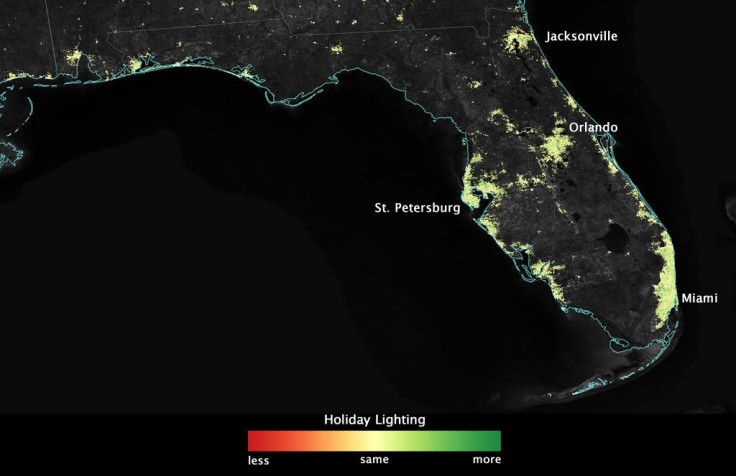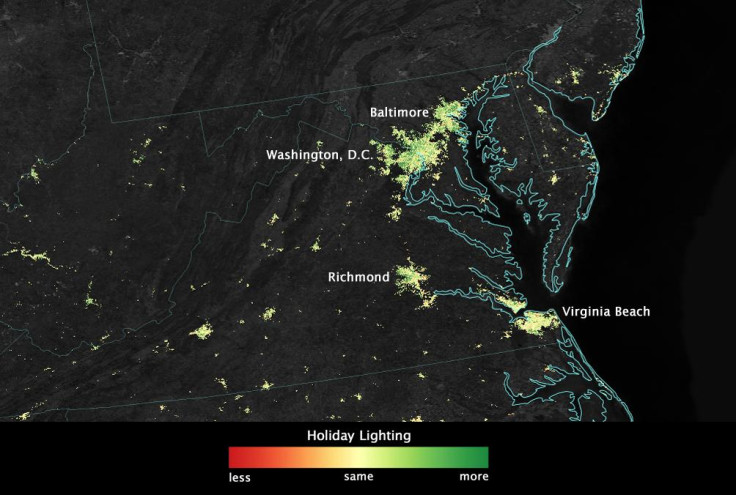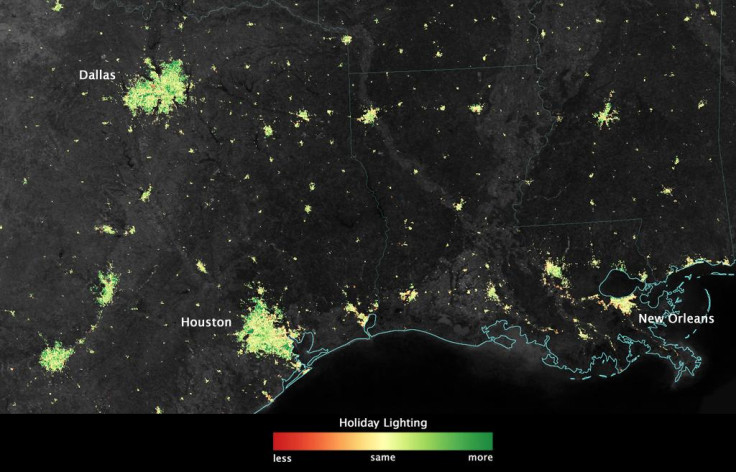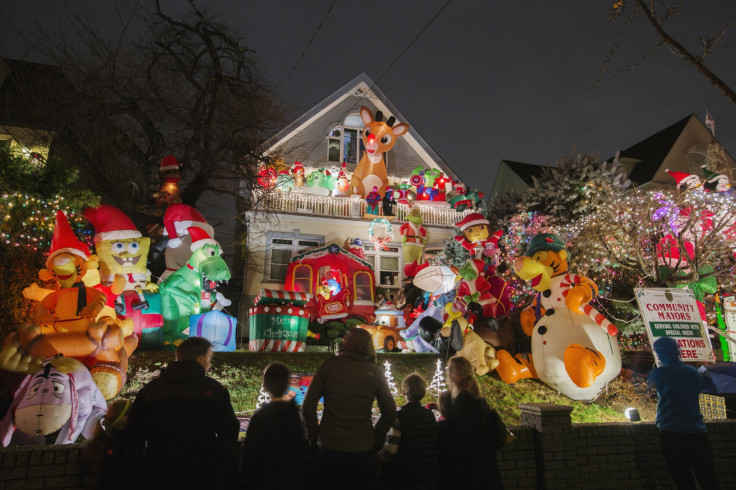Nasa satellites spot garish Christmas decorations from space: Florida is the worst offender
Garish Christmas decorations have been spotted from space, with Nasa/NOAA satellites showing lights put up across the globe for the festive season.
By looking at daily data from the Suomi National Polar-orbiting Partnership satellite, Nasa scientist Miguel Román showed how patterns in night time light intensity change during the major holiday seasons of Christmas and Ramadan.
During Christmas, many US cities shine up to 50% brighter at night than they do for the rest of the year. In some Middle Eastern cities, the same is true during Ramadan.

Analysis of the 2012/2013 Christmas period showed lights started getting brighter after Black Friday, continuing through to New Year's Day.
In most suburbs and outskirts of major cities, light intensity increased by 30 to 50%. Lights in urban areas increased by up to 30%. Florida shows a particular penchant for Christmas lights, maps show.
Román said: "These lighting patterns are tracking a national shared tradition."

Study co-author Eleanor Stokes added: "Overall, we see less light increases in the dense urban centres, compared to the suburbs and small towns where you have more yard space and single-family homes."
The team first noticed a significant increase in light intensity over Egypt in 2012. They found the change corresponded with the holy month of Ramadan – when daytime fasting means many social gatherings take place after dark.
Experts say being able to track energy trends will allow policy makers to better understand what drives consumption.

"More than 70% of greenhouse gas emissions come from urban areas," Román said. "If we're going to reduce these emissions, then we'll have to do more than just use energy-efficient cars and appliances. We also need to understand how dominant social phenomena, the changing demographics of urban centres, and socio-cultural settings affect energy-use decisions.
"We can now see pieces of these patterns from space – when, where and how often we turn on the lights."

© Copyright IBTimes 2025. All rights reserved.






















